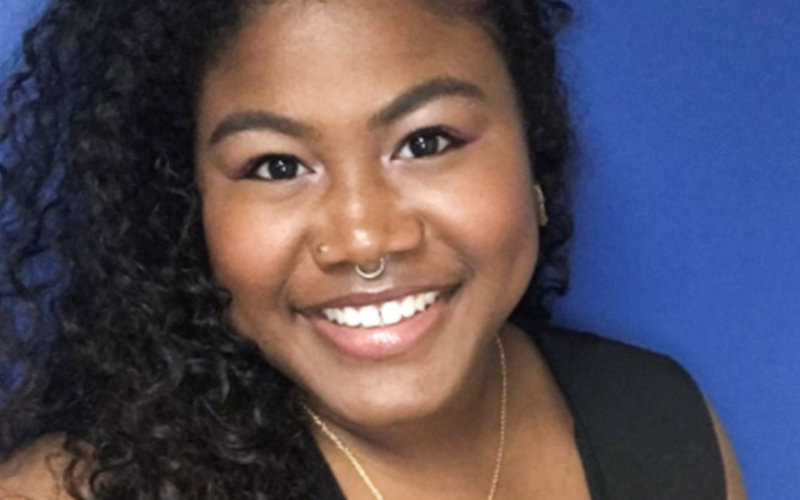
Speech by Ainaria Johnson, who earned an early childhood special education credential. Johnson is the College of Education credential student speaker for the Class of 2021.
In February 2020, just before the pandemic became worldwide, a video emerged showing a 6-year-old Black girl getting taken away from school in a police car with her hands zip tied behind her back. The incident occurred in September 2019 and that 6-year-old, Kaia Rolle, was exhibiting behavior issues due to exhaustion from sleep apnea.
In the course SPED 322, we learned that a motivating operation that can affect behavior is tiredness, which probably led to Kaia expressing aggressive behavior. But her teaching team failed to see her as more than a student in the class. Instead of seeing her as a whole person who might have experiences outside of school, they wrote off her aggressive behavior and instead of calling her family or asking for help on campus, they called the police on her.
At this very politically charged moment of our nation’s history, it is commonplace for people in power to act first and consider their actions later, even in educational settings. According to the New York Times in 2019, “46 percent of total suspensions last year were issued to Black students, who make up 26 percent of the school system.”
I am a first-generation daughter to parents from opposite sides of the world. I know what it feels like to have a culturally- and linguistically-diverse family and parents that will always have an accent. I want to teach and use emotional intelligence to help empathize with students when they’re having a difficult time, because that allows us to celebrate their successes even more. I am an early childhood specialist for children on the autism spectrum or who have autism-like disorders. I want to work in a Title I school to serve communities like those that raised me. Preschool entices me because it’s a time for exponential growth and achievement, and early intervention has proven to be key and provide positive outcomes across the board. My undergraduate degrees in African American and Women’s studies gave me a lens to see the world through and opened my eyes to the reality that not everything, especially education, is equal. My experiences have shaped the type of educator I hope to become. I want to reinforce that students who are culturally- and linguistically-diverse and exceptional can still be successful citizens of our country and deserve a free and public education just like anybody else.
As teachers, we should strive to see students as a whole, realizing that they have lives and experiences outside of school that I may not understand at that moment. As teachers we must consider our actions in real time, how students may be affected outside of the class and how it affects their behavior inside class. The racial makeup of our country, and therefore our schools, is changing rapidly. Still, more than 70 percent of teachers in primary and secondary schools are white. I believe our differences make us stronger. Teaching with that at the forefront of our minds might not make a widespread difference, but it will make a difference for students with which we will work. We should strive to be educators who would never consider calling the police on a student, let alone a 6 year old. We should strive to be educators that have strong communication with families so that we can have a strong connection with our students.
Together, we can do this and change the world.